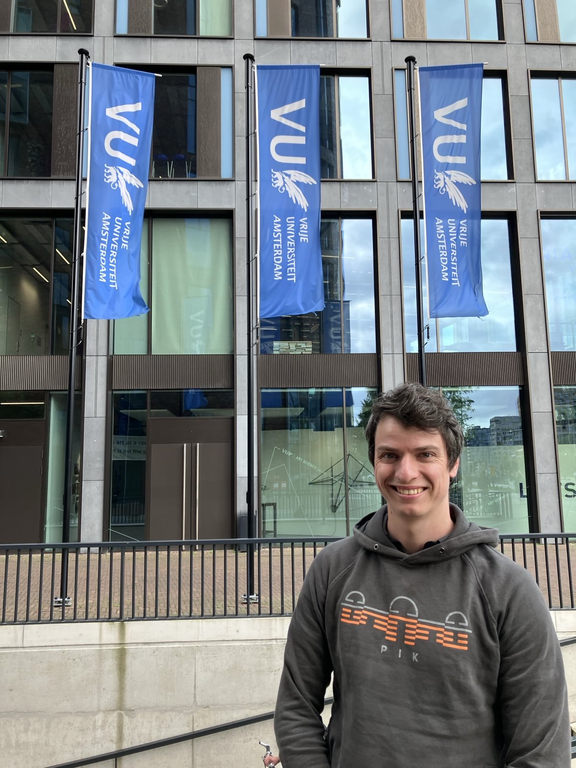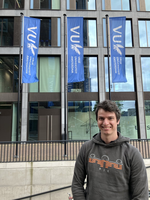STSM at Vrije Universiteit Amsterdam: Advancing Storm Surge Modeling with Deep Learning
A highlight of my stay was working closely with Timothy Tiggeloven, Tim H. J. Hermans, and Anaïs Couasnon, whose expertise in deep learning based storm surge modeling greatly helped to refine my approach.
My main task was implementing a probabilistic model that projects storm surge based on global climate models, maintaining the spatial relationships between coastal locations. Initially, I worked on an autoregressive model, but after discussions with colleagues, we shifted to a more robust, non-autoregressive approach that projects daily maximum storm surge, significantly reducing error accumulation over longer time frames.
In addition to scientific discussions, I presented my work at a seminar hosted by the Water and Climate Risks group at VU. Sharing my research on storm surge projections under ISIMIP protocols was incredibly rewarding, and the feedback I received will help shape the final model.

This experience not only advanced my research but also laid the foundation for future collaborations. I’m excited to continue this work with researchers in Amsterdam and Utrecht and look forward to further enhancing the accuracy and uncertainty estimates of our storm surge projections.
Thanks to the EU COST Association and COST Action CA19139 PROCLIAS for supporting this STSM. Stay tuned for updates as we refine the model and contribute to the ISIMIP project, providing more reliable projections for coastal flooding risks in a changing climate!


